In an increasingly competitive backdrop, selecting the right B2B agency in 2023 is a strategic decision that can significantly impact your bottom line. With the constant evolution of digital technologies, the role of a cybersecurity marketing agency has become indispensable in this equation. They not only safeguard your digital assets but also enhance your brand’s credibility. As we delve into the top 10 metrics for evaluating B2B agencies this year, keep in mind that each metric is a pillar that can help you build a successful partnership.
Metric 1: RoI and Profitability
The ultimate barometer for any business decision is Return on Investment (RoI). When it comes to evaluating B2B marketing agencies, a comprehensive understanding of RoI is indispensable. It’s not merely about the dollars spent versus dollars earned. It’s also about the strategic value that an agency brings to your business. From generating quality leads to helping you convert leads into sales, an agency’s contributions should translate into tangible financial gains.
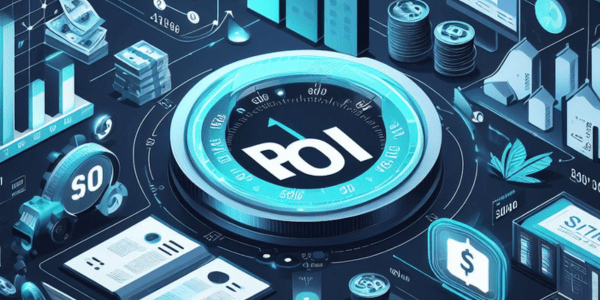
Key components of this metric include:
- Lead Quality: Measuring RoI is impossible without looking at the quality of the leads generated. Quality is almost always more important than quantity.
- Sales Conversions: To closely monitor how many leads turn into paying customers.
- Customer Lifetime Value: Gives an idea of the long-term value an agency can bring by not just acquiring, but by retaining customers.
Metric 2: Customer Lifetime Value (CLV)
An often overlooked yet crucial metric for assessing B2B digital marketing agencies is Customer Lifetime Value (CLV). CLV goes beyond immediate transactions and looks at the long-term worth a customer brings to your business. This perspective is vital because it influences not just acquisition strategies but also retention efforts. A good B2B agency will focus on maximizing CLV, ensuring you get the most bang for your buck over the long term.
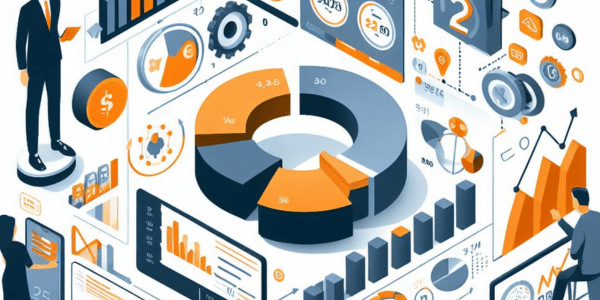
Key components of this metric include:
- Acquisition Cost: Pay attention to what you’re spending to acquire each customer. A lower acquisition cost often signals a better CLV.
- Retention Rates: Higher retention rates usually correlate with a higher CLV, indicating that an agency’s efforts are resonating with your target audience.
- Upsell and Cross-sell Rates: These are indicators of customer satisfaction and loyalty, further affecting CLV.
Metric 3: Brand Awareness Metrics
When working with full-service B2B agencies, it’s essential to examine their effectiveness in boosting your brand’s visibility. Brand awareness metrics, like reach, impressions, and social engagement, offer tangible insights into how well an agency’s strategies are capturing your target audience’s attention. The higher these metrics appear, the greater the chances of converting awareness into action, whether it’s a click, a sign-up, or a purchase.
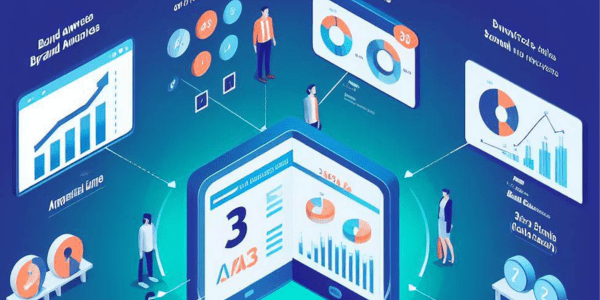
Key components include:
- Reach: Measures how many people have seen your brand or content, helping you understand the potential size of your audience.
- Impressions: Counts the number of times your content has been displayed, whether clicked or not, giving you an idea of visibility.
- Social Engagement: Measures the likes, shares, and comments to indicate how actively audiences are interacting with your brand.
Metric 4: Conversion Rate
A high conversion rate is often the golden ticket to gauging the effectiveness of B2B content marketing agencies. After all, generating leads and driving traffic is futile if it doesn’t culminate in actual conversions. The conversion rate is a direct indicator of how successfully an agency’s strategies encourage potential clients to take a desired action — whether that’s filling out a form, subscribing to a newsletter, or making a purchase.
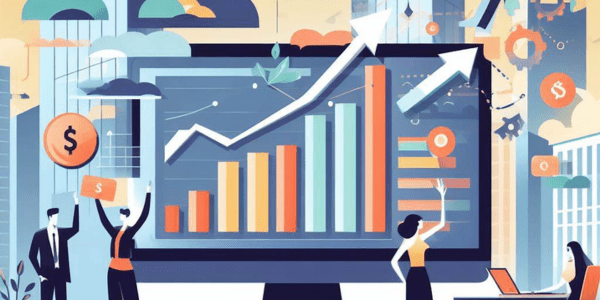
Key components include:
- Form Submissions: The number of people who fill out and submit a form compared to the total number of visitors.
- Newsletter Sign-Ups: How many people opt into your newsletter, giving you explicit permission to maintain contact.
- Purchases: If you’re running an eCommerce platform in your B2B strategy, monitoring the purchase rate is paramount.
Metric 5: Client Satisfaction and Retention
Client satisfaction and retention are among the most crucial indicators of an agency’s quality. These factors are especially vital when dealing with specialized B2B agencies that claim expertise in particular industries or services. A satisfied client is more likely to stay and become a brand ambassador, spreading positive word-of-mouth messaging that also helps bring in additional business.
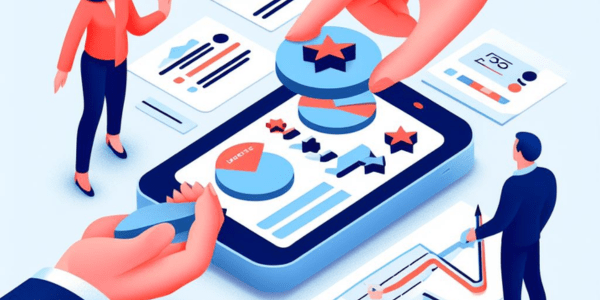
Key indicators of client satisfaction and retention include:
- Net Promoter Score (NPS): Gauges client satisfaction based on how likely they are to recommend a business to others.
- Client Churn Rate: Tracking the number of clients who cut ties during a specified period can provide valuable insight into service quality and client satisfaction.
- Customer Satisfaction Surveys: Tailored to delve into specific areas, surveys provide a granular view of what any business is doing right or wrong.
Metric 6: Marketing Channel Effectiveness
Given today’s marketing complexities, understanding which channels deliver the most impact is critical. This is particularly true for B2B data-driven agencies, which lean heavily on analytics to gauge channel effectiveness. From social media and content marketing to PPC and SEO, the efficacy of each channel can make or break any marketing investment.

Measurements of channel effectiveness include:
- Multi-Touch Attribution: This helps you understand how various touchpoints contribute to conversions, to help you refine budget allocation.
- Cost-Per-Lead (CPL): Monitoring CPL across multiple channels offers insights into where your money is best spent.
- Engagement Rates: Metrics such as click-through rates, likes, and shares can serve as proxies for channel effectiveness, especially in content-heavy or social media-driven campaigns.
Metric 7: Lead Quality and Quantity
In B2B markets, not all leads are created equal, making it imperative to assess both quality and quantity when evaluating B2B marketing agencies. Quantity may generate initial excitement, but the quality of leads is what ultimately drives conversions and long-term partnerships. This is also why using an agency that can deliver on both fronts is crucial to business success.
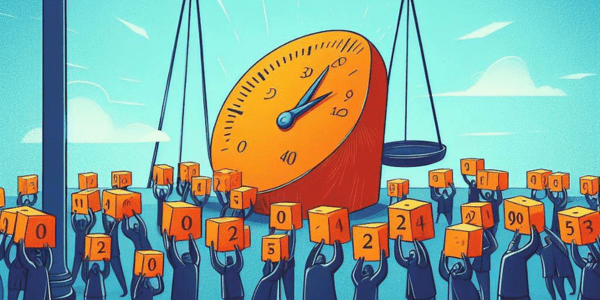
Lead-focused measures include:
- Lead Scoring: Implementing a lead scoring system can help you quickly identify high-quality leads, prioritizing them for sales team follow-up.
- Conversion Rates: A higher conversion rate is a solid indicator of lead quality and should be a key focus.
- Lead-to-Customer Ratio: Shows you a bigger picture view of how many leads are turning into customers, helping you assess the quality and quantity of leads generated.
Metric 8: Cost Per Acquisition (CPA)
Cost Per Acquisition (CPA) is considered a pivotal metric, offering invaluable insights into the financial efficiency of B2B content marketing agencies. Lower CPA means you’re getting more value for your investment, which makes it a good metric to help you evaluate the performance of your agency partner.
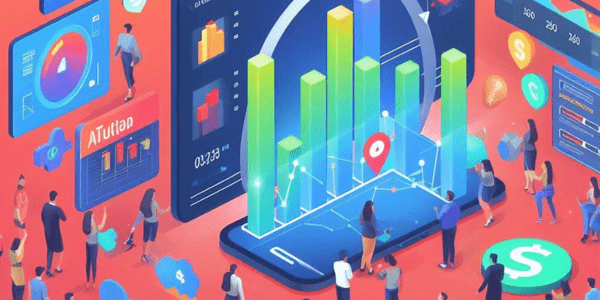
Types of measures used to gauge CPA include:
- Channel-Specific CPA: Analyzing CPA by marketing channel enables you to understand which channels are most cost-effective, to better allocate your marketing budget.
- Lifetime Value Comparison: Pairing CPA with Customer Lifetime Value (CLV) provides a comprehensive view of your investment’s longevity and profitability.
- Trend Analysis: Monitoring CPA trends over time provides insight into the agency’s learning curve and adaptability, which is essential to long-term success.
Metric 9: Technology Stack and Integration
When evaluating B2B digital marketing agencies, it’s paramount to assess their technology stack and how seamlessly it can integrate with your existing systems. A well-curated tech stack is not just about having the best tools but ensuring they work well with your infrastructure, amplifying your marketing efforts rather than complicating them.
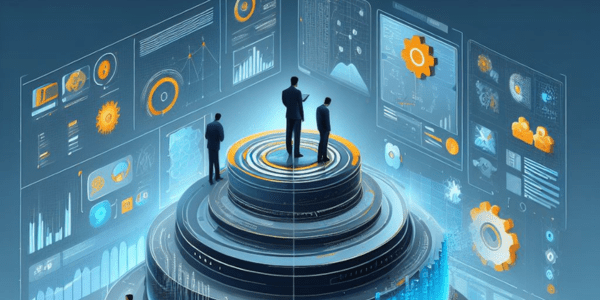
Important factors to consider include:
- Platform Compatibility: An agency’s software solutions should be compatible with your platforms to facilitate smooth data flow and analytics.
- Scalability: To ensure the agency’s tech stack can grow along with your business, and avoid potential roadblocks that could hinder future performance.
- User Training: Often-overlooked, but vital — how easy is it for your team to learn the new tools? Training resources or assistance can make or break the effective deployment of a marketing technology stack.
Metric 10: Compliance and Security
In an era where data breaches and cyber threats loom large, the cybersecurity marketing agency you choose must be fortified with solid compliance measures and security protocols. Evaluating an agency based on its approach to compliance, whether it’s GDPR, CCPA, or industry-specific regulations, is essential to safeguard your data and maintain customer trust.

Security and compliance measures should include:
- Data Encryption: An agency should be using advanced encryption techniques to protect your sensitive data at rest and in transit.
- Regular Audits: Choose agencies that conduct periodic security audits, both internally and through third-party services, to ensure their systems are protected.
- Incident Response Plan: In case of a security breach, a well-defined incident response plan can help mitigate risks and limit damage, preserving your brand reputation.
Additional Insights
As we navigate the complex, competitive nature of doing business in 2024, the metrics for evaluating specialized B2B agencies are worth your consideration. Whether it’s RoI, brand awareness, or measures that focus on compliance and security, each of the 10 metrics described here can be a valuable touchstone to gauge an agency’s ability to meet your business needs. Remember, the best B2B agencies deliver results that align with your organization’s goals and values, acting as an extended arm of your team. In a year set to be dominated by digital transformation and ever-evolving challenges, this comprehensive checklist provides a guide to making an informed, effective selection decision about your B2B agency of choice.